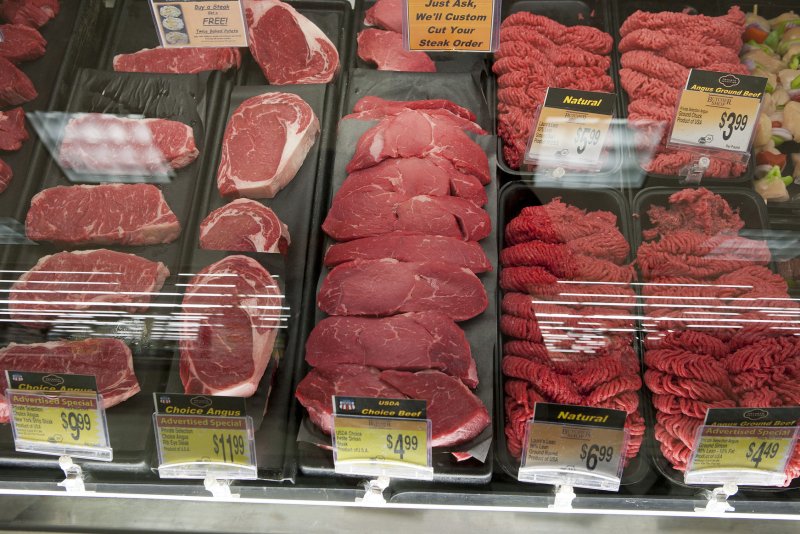Failing to properly safeguard kitchen surfaces can lead to bacteria contamination when working with raw meats, like poultry, new research says. File Photo by Gary C. Caskey/UPI |
License Photo
Aug. 20 (UPI) -- Washing raw chicken before it's cooked is a common practice, but new federal research advised against it Tuesday -- saying it can lead to foodborne illnesses that are responsible for thousands of deaths each year.
The U.S. Department of Agriculture cautions against washing raw poultry, saying it only risks scattering bacteria onto kitchen counter tops, other surfaces and into other food.
"Cooking and mealtime is a special occasion for all of us as we come together with our families and friends," USDA Deputy Under Secretary Mindy Brashears said in a statement. "However, the public health implications of these findings should be of concern to everyone.
"Even when consumers think they are effectively cleaning after washing poultry, this study shows that bacteria can easily spread to other surfaces and foods. The best practice is not to wash poultry."
The study said of those who washed chicken, 60 percent subsequently had resulting bacteria in their sink -- and 14 percent still had bacteria even after they cleaned the sink. More than a quarter transferred bacteria to nearby lettuce that had already been cleaned.
"The best practice is not to wash poultry," the department said.
The USDA's advisory recommends preparers handle foods that don't need to be cooked -- like vegetables -- first, and raw meats second. The department said cookers should also clean and sanitize all surfaces that could've come into contact with raw meats. It also recommends ridding meats of bacteria by cooking them at a safe temperature --- 145 degrees for beef, pork, lamb and veal; 160 degrees for ground meat and 165 degrees for poultry.
Pregnant women, young children, older adults and persons with weakened immune systems are particularly vulnerable.
Cleaning your hands properly is also important, experts say.
"Not washing your hands for 20 seconds immediately after handling those raw foods is just as dangerous," Food Safety and Inspection Service Administrator Carmen Rottenberg said
The Centers for Disease Control and Prevention says about 48 million people are sickened by foodborne illnesses each year -- leading to 128,000 hospitalizations and 3,000 deaths.















